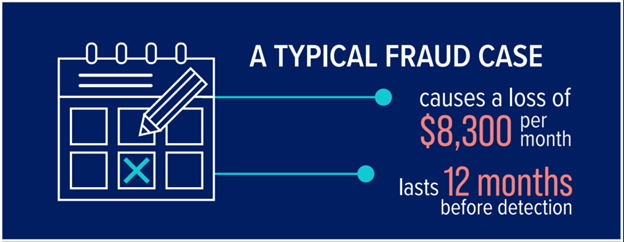Preview: Here's what SAO has in store for the 2023 International Fraud Awareness Week
Nov 8, 2023
Every year, the Special Investigations Team at the Office of the Washington State Auditor investigates frauds in all types of governments, from large state agencies to small towns and special purpose districts. In fiscal year 2022, our Office published 13 fraud reports, representing nearly half a million dollars in misappropriated or questionable uses of public resources.
No matter the type or size of your government, fraud could happen to you and, if left undetected, it could have significant financial implications.
While our Office is always promoting awareness around preventing, detecting and deterring fraud, we're ramping up our efforts next week in honor of International Fraud Awareness Week, which kicks off Nov. 12. Starting Monday, we'll be posting articles daily on the Audit Connection Blog. Here's a sneak peek of what's to come:
- New fraud-prevention resource about unanticipated revenue. Unlike property and sales taxes, not every government revenue is predictable. Revenues such as rebates, donations, or collection agency payments are infrequent or unanticipated, making them a prime target for misappropriation. Our new guide, Expect the Unexpected, will help you evaluate and improve your internal controls around unanticipated revenue.
- Not sure how to report a loss? SAO’s updated policy has the answers. State and local governments should be familiar with RCW 43.09.185, which requires them to immediately report known or suspected losses to SAO. But the statute’s long history has come with a lot of questions and confusion. Recently, we updated the policy with additional information and clarifications to help governments determine what they need to report.
- Review the bank statements! Here’s your playbook. Your government’s bank account activity is how anyone can see where your money is coming from and where it is going. This is why many fraud schemes show themselves—boldly or subtly—on the bank statements. If you aren’t sure what to look for in a bank statement, don’t worry! We’ve made a five-part playbook for you to follow.
- We had a fraud. What now? To help you plan for the aftermath of a fraud investigation, our Special Investigations Team has outlined what governments can expect after we’ve published our report.
- Movies, podcasts and other media to help you understand fraud from all angles. Grab your popcorn! Back by popular demand, we've compiled a list our favorite documentaries, movies, shows and podcasts that provide great insight into real-life fraud schemes and scandals.
Be on the lookout for these articles and more, and make sure to check out the official website for #FraudWeek to learn how your government can get involved.

Source: Association of Certified Fraud Examiners Occupational Fraud 2022: A Report to the Nations
